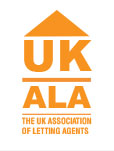Associated/Accredited with





Fraud is a major concern in the property market, as criminals may use illegal or deceptive methods to gain access to money, personal items, or property for their own benefit. Here are three types of fraud that occur in the property market, as well as some suggestions for how to prevent them.
Conveyancing fraud typically occurs on the day of completion of a property transaction. Criminals may send a spoof email that mimics the parties involved in the transfer of money, usually the conveyancing solicitor, and use this to persuade the buyer to use new bank details and transfer money to the fraudster's account. To prevent this, it's important to call your solicitor or known contact by phone before transferring any payment to confirm the request and check payment details.
Property title fraud occurs when criminals steal a property owner's identity or use false documents to illegally transfer the property into their own name, updating the HM Land Registry details. To prevent this, setting up property alerts via the HM Land Registry or placing a restriction on the property to prevent it from being registered for sale can be helpful.
Rental fraud occurs when tenants are tricked into paying upfront fees, deposits, or rent to criminals who may have led them to believe that the rental properties belong to them. To prevent this, tenants should research any letting agency, landlord, or property before handing over any money by using the internet, review sites, or publicly available contact details.
It's important to remain vigilant to prevent being a victim of fraud. If you suspect you have been a victim of fraud in Scotland, contact the Police via 101. Remember, we will never ask for payment via social media or for customers to share information from payment cards. If you are unsure whether any contact from them is genuine, please contact us by phone and email.




